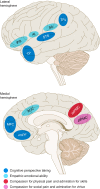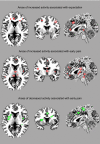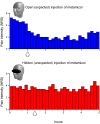Placebo and the new physiology of the doctor-patient relationship
- PMID: 23899563
- PMCID: PMC3962549
- DOI: 10.1152/physrev.00043.2012
Placebo and the new physiology of the doctor-patient relationship
Abstract
Modern medicine has progressed in parallel with the advancement of biochemistry, anatomy, and physiology. By using the tools of modern medicine, the physician today can treat and prevent a number of diseases through pharmacology, genetics, and physical interventions. Besides this materia medica, the patient's mind, cognitions, and emotions play a central part as well in any therapeutic outcome, as investigated by disciplines such as psychoneuroendocrinoimmunology. This review describes recent findings that give scientific evidence to the old tenet that patients must be both cured and cared for. In fact, we are today in a good position to investigate complex psychological factors, like placebo effects and the doctor-patient relationship, by using a physiological and neuroscientific approach. These intricate psychological factors can be approached through biochemistry, anatomy, and physiology, thus eliminating the old dichotomy between biology and psychology. This is both a biomedical and a philosophical enterprise that is changing the way we approach and interpret medicine and human biology. In the first case, curing the disease only is not sufficient, and care of the patient is of tantamount importance. In the second case, the philosophical debate about the mind-body interaction can find some important answers in the study of placebo effects. Therefore, maybe paradoxically, the placebo effect and the doctor-patient relationship can be approached by using the same biochemical, cellular and physiological tools of the materia medica, which represents an epochal transition from general concepts such as suggestibility and power of mind to a true physiology of the doctor-patient interaction.
Figures












References
-
- Abramson LY, Metalsky GI, Alloy LB. Hopelessness depression: a theory-based subtype of depression. Psychol Rev 96: 358–372, 1989
-
- Abramson LY, Seligman MEP, Teasdale J. Learned helplessness in humans: critique and reformulation. J Abn Psychol 87: 49–74, 1978 - PubMed
-
- Ader R. The role of conditioning in pharmacotherapy. In: The Placebo Effect: An Interdisciplinary Exploration, edited by Harrington A. Cambridge, MA: Harvard Univ. Press, 1997, p. 138–165
-
- Ader R, Cohen N. Behaviorally conditioned immunosuppression. Psychosom Med 37: 333–340, 1975 - PubMed
-
- Ader R, Cohen N. Behaviorally conditioned immunosuppression and murine systemic lupus erythematosus. Science 215: 1534–1536, 1982 - PubMed
Publication types
MeSH terms
Substances
LinkOut - more resources
Full Text Sources
Other Literature Sources
Medical

